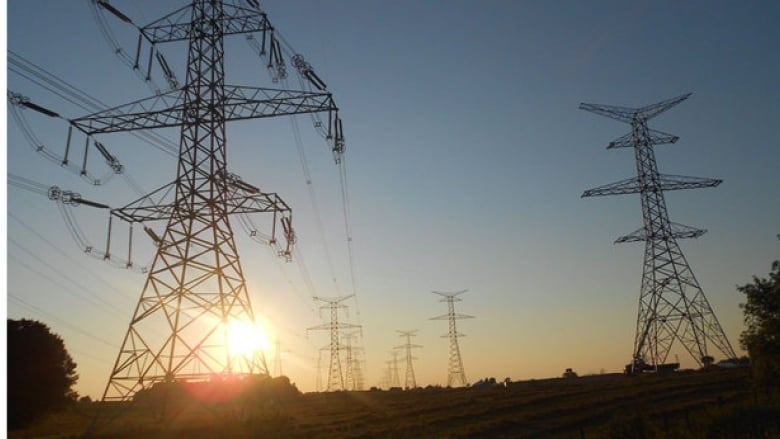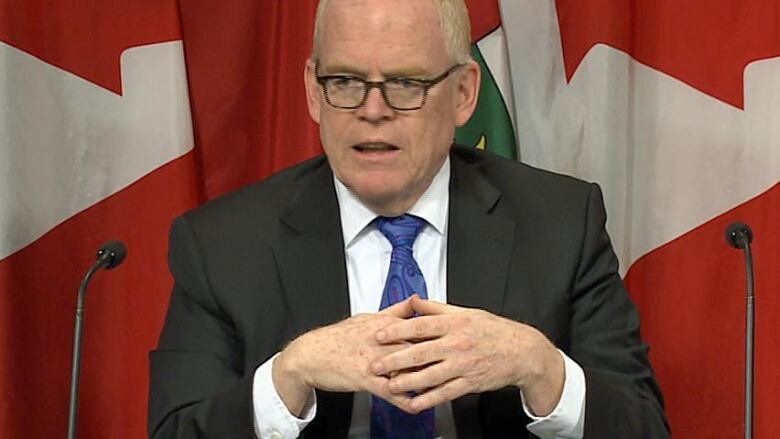Toronto spends least on home energy, Northern Ontario spends most, new report says
Ontario's fiscal watchdog says home energy costs are 'greater burden' on low-income residents

Households in theToronto,Hamilton and Niagara regions spend the least amount of money on home energy, while households in Northern Ontario spend the most, according toa new report by the province's fiscal watchdog.
The reportby the financial accountability office, released on Tuesday, said household spending on home energy placesa "greater burden" on lower-income residents than on those with higher incomesin Ontario.
It saidhouseholds in the bottom 20 per cent of income spent anaverage 5.9 per cent of income on home energy, while households in the top 20 per cent spent 1.7 per centof income. Itdefines home energy spending as how much Ontario residents pay to heat and cool their homes and runtheir appliances.
Factors that explain these differences include access to natural gas for heating, climate, and size of residence, the report said.Households in Northern Ontario tend tospend more on electricity and other fuel, such as heating oil, but less on natural gas, it said.
"While changing prices are an important driver of home energy spending, changes in energy efficiency and substitution between energy sources also matter," the report said.

Some Ontario residents are able to react to rising electricity prices either byusing energymore efficiently or by changing energy sources, it said.
"Looking at how much households actually spend on energy in the home, rather than at prices alone, provides a clearer picture of how energy affects the cost of living of Ontarians."
Stephen LeClair, Ontario's financial accountability officer, said Tuesday in an interview with CBC Newsthat the report is an attempt to provide a factualsnapshot of the impact of rising home energy costs in Ontario.
"Given all the comments that have taken place with regards to electricity, we wanted to show what home energy costs look like, split out by region as well as by income group," he said. "Home energy costs are not just about electricity."
LeClair said the report shows natural gas and home heating oil are part of home energy costs and that there are regional and income variations. He said it makes it clear thatToronto, Hamilton and Niagara regions spend less than Northern, Western and Eastern Ontario.
"Generally, those households with a higher income spend a higher amount of money in absolute terms on energy, but as a percentage of total income, they spend less," he said.
Low-income families feeling the pinch
Peter Tabuns, MPP for Toronto-Danforth, raised the issue of home energy spending during Question Period in the Ontario legislature on Monday. He asked if the province will stop the furtherprivatization of Hydro One to prevent home energy costs from rising.
"Over and over, people say they want the next generation to be able to build a better life. But for too many people, they feel like their bills are making that almost impossible," he said.
"Rural and northern families and low-income families feel every increase. Taking the HST off hydro is a first step but it can't be the only step to getting bills under control."
Ontario Energy Minister Glenn Thibeaultsaid the province is trying to bring down home energy costs.
"What's remarkable about these findings is that Ontario has already done the heavy lifting in modernizing our energy infrastructure and transitioning off of coal generation. We continue to find ways to reduce costs for consumers right across the province."
The financial accountability office, created by a provincial law,provides independent analysis on the province's finances, economictrends and other matters deemed important to the Ontario legislature.












_(720p).jpg)


 OFFICIAL HD MUSIC VIDEO.jpg)
.jpg)



























































































